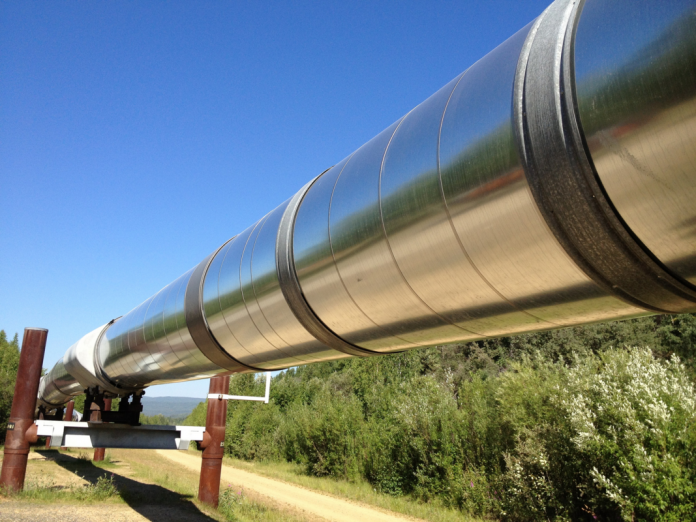British Columbia and Alberta have rarely seen eye to eye, in part due to our differing beliefs regarding resource extraction vs. environmental protection.
The oil pipelines proposed in recent years have only added fuel to that fire by bringing our differing views into a direct conflict, in which there is little room for compromise. Last year, the federal government approved the Trans-Mountain Pipeline project, which would run from Edmonton to Burnaby, and roughly triple the amount of petroleum being shipped out through B.C. waters.
This of course doesn’t sit well with most people in B.C., or our government, who fear the environmental impact of a large spill. In January, the B.C. government announced that it would not allow any additional oil to be shipped to B.C. from Alberta until a more thorough assessment of the risks could be made. Alberta’s government, accusing B.C. of trying to take matters of interprovincial commerce into its own hands, responded with a ban on B.C. wines in Alberta government liquor stores. This ban has now been overturned, as have the restrictions on petroleum traffic into B.C. However, Alberta’s premier, Rachel Notley, has threatened an even more severe embargo on oil shipments to B.C. and/or the rest of Canada to “raise awareness of the issue.”
For most readers of this paper, the knee-jerk reaction is to rally to B.C.’s banner in our standoff with our eastern neighbour, and to a lesser extent, the feds. It is important to consider issues from the other side, but it is nonetheless difficult to square Alberta’s needs and wants with our own.
The oil industry is a major part of Alberta’s economy, and is the main reason why Alberta is traditionally considered a “have” province. Alberta understandably does not want to jeopardize this position, and has few economic options besides the petroleum industry. From their point of view, B.C.’s obstinate efforts to block pipelines to the Pacific are robbing Alberta (and Canada as a whole) of industry profits that will ensure their well-being for reasons that essentially amount to selfish NIMBYism.
However, you have to see it from our perspective, as well. B.C.’s economy, like Alberta’s, is tied to primary resources. But while Alberta’s keystone industry is oil extraction, which is non-renewable, and degrades the environment one way or another, B.C. is rooted in forestry and fishing, which are renewable, and depend on a healthy ecosystem to function. Our salmon fishery is in a precarious enough position without the added risk of a major oil spill threatening to send the whole marine ecosystem (in which the salmon are a keystone species) into collapse. Look at what happened to Atlantic Canada when their cod fishery collapsed, and you’ll see what’s at stake here.
Not only that, but it’s the principle of the thing that matters. The lion’s share of the benefits from these pipeline projects (apart from short-term construction jobs) will go to Alberta and the feds, while B.C. is expected to shoulder most of the risks involved. Not to mention, Notley and her government have been using rather heavy-handed methods in comparison to B.C. Whereas B.C. imposed restrictions on any additional oil being shipped, Alberta responded with outright bans. The B.C. government is currently looking through the rules to see if they have any legal recourse while Notley makes threats that the provincial government may not have the authority to carry out.
As for the prime minister and his federal government, they’re currently trying to keep a lid on the situation. Trudeau doesn’t want to pass up the potential benefits to the Canadian economy that Alberta oil with easy access to world markets could bring. In attempting to justify his position, he says that he is intending to transition Canada to renewable energy, but must safeguard Canada’s economy during the time of transition, which could take many years, as stated in videos from the Huffington Post. This sounds rather counter-productive, moving towards renewable energy while at the same time prolonging and building up the fossil fuel industry.
Sooner or later, Trudeau will have to pick a side, and risk the political consequences either way. At the beginning, Trudeau was leaning more in favour of Alberta, but if B.C. Premier John Horgan plays his cards right, and Notley plays hers poorly through jurisdictional overstep and threatening the flow of oil herself, Trudeau may decide instead that Alberta needs to be made an example of, or that losing the political support of B.C. isn’t worth it. Trudeau, in a press statement, declared that he will do whatever is in Canada’s best interests. Notley and Horgan have vowed to do the same for their respective provinces. At least one of them is bound to walk away disappointed.
Still, come what may, at least we’ll always have delicious B.C. wine to toast our victory, or drown our sorrow, whichever the case may be.
Image: Maureen/Flickr


